Abstract
OBJECTIVE--To determine the patterns of consultations with the general practitioner among different ethnic groups and the outcome of these consultations. DESIGN--Retrospective analysis of data from one urban group general practice collected during 1979-81 as part of a research project in seven practices. SETTING--Group general practice in the London borough of Brent with a list size of 10,877 patients in July 1980. SUBJECTS--Patients registered with the practice during the 23 months to April 1981 who accounted for 67,197 consultations. MAIN OUTCOME MEASURES--Ethnic state, sex and social class distribution, and diagnosis of patients consulting and frequency of consultations analysed as standardised consultation ratios and standardised patient consultation ratios. RESULTS--Compared with other ethnic groups male Asians (that is, including those born in Britain and those originating from the Indian subcontinent and east Africa) had a substantially increased standardised patient consultation ratio. Consultation rates for mental disorders--in particular, anxiety and depression--were reduced in all groups of immigrant descent. West Indians consulted more frequently for hypertension and asthma, and their children less frequently with otitis media. Asians consulted more frequently with upper respiratory tract infections and non-specific symptoms. Native British patients were more likely to leave the surgery with a follow up appointment, prescription, or certificate. CONCLUSION--Notwithstanding the limitations of this study, ethnic differences in consultation rates were apparent. These differences require further investigation if the needs of minority ethnic groups are not to be overlooked.
Full text
PDF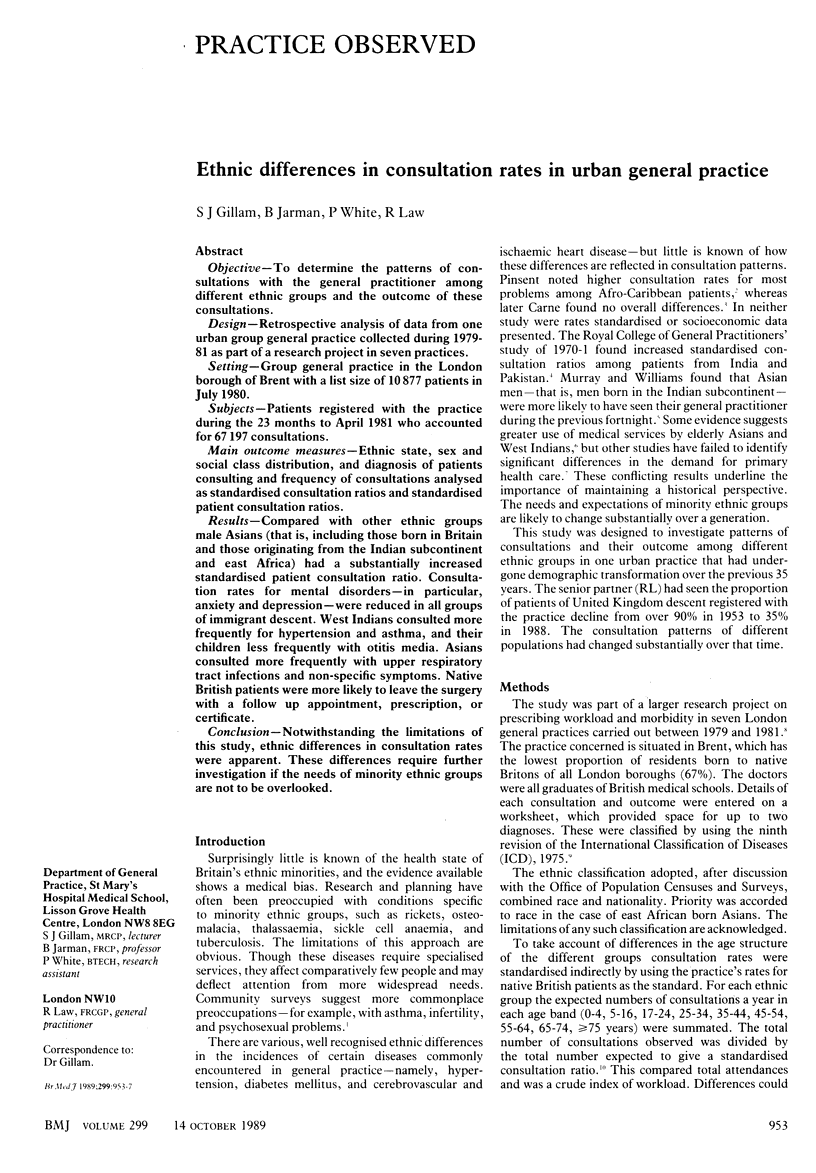
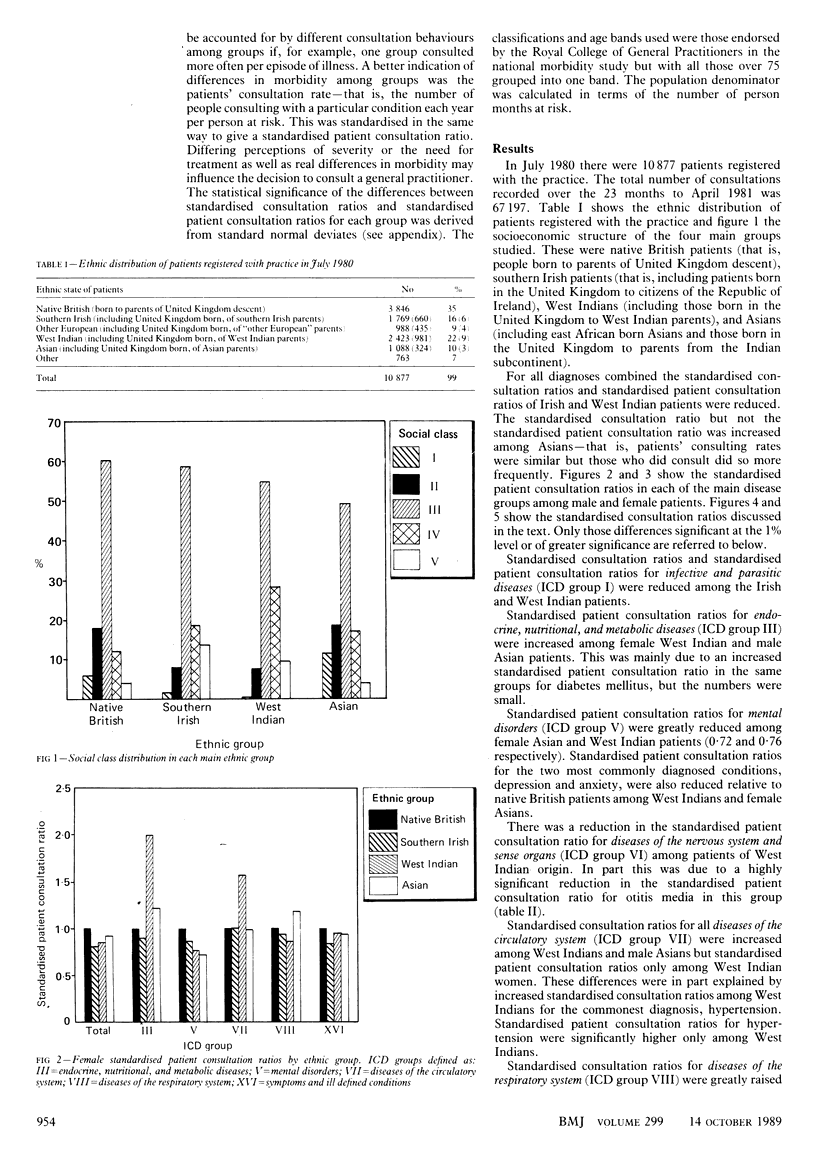
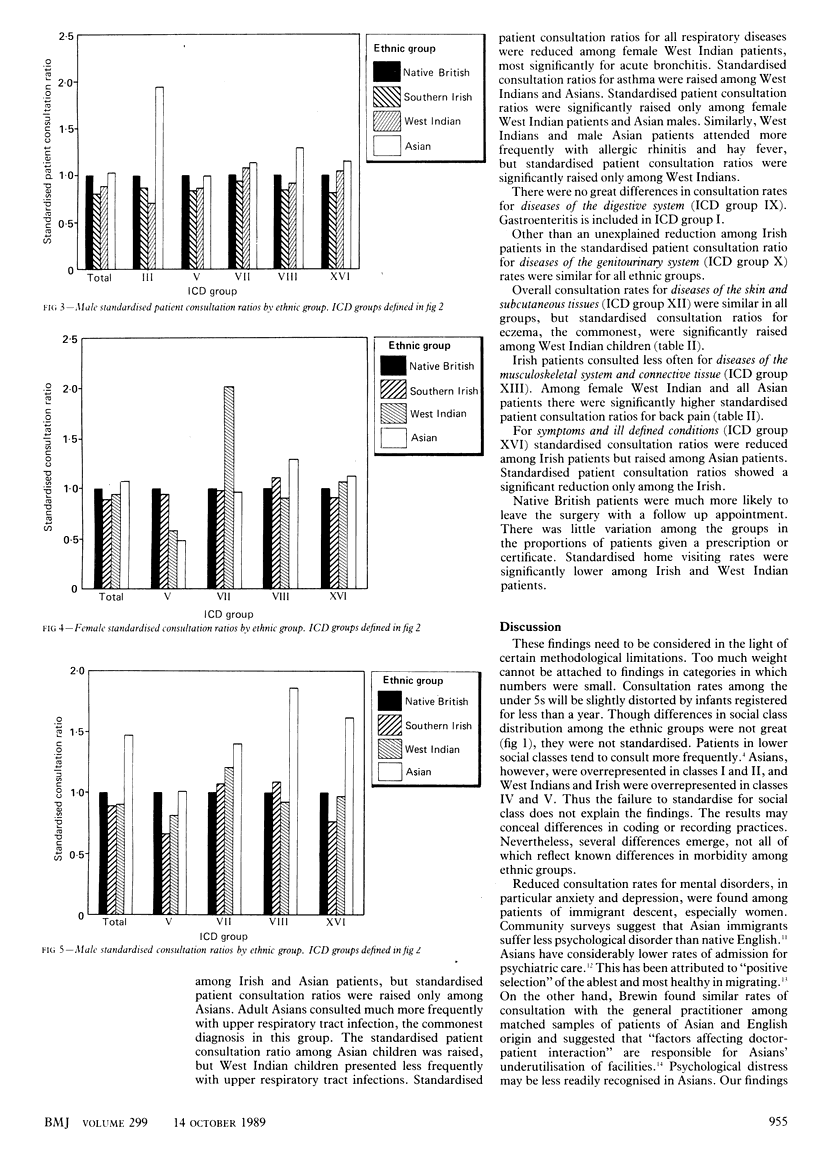
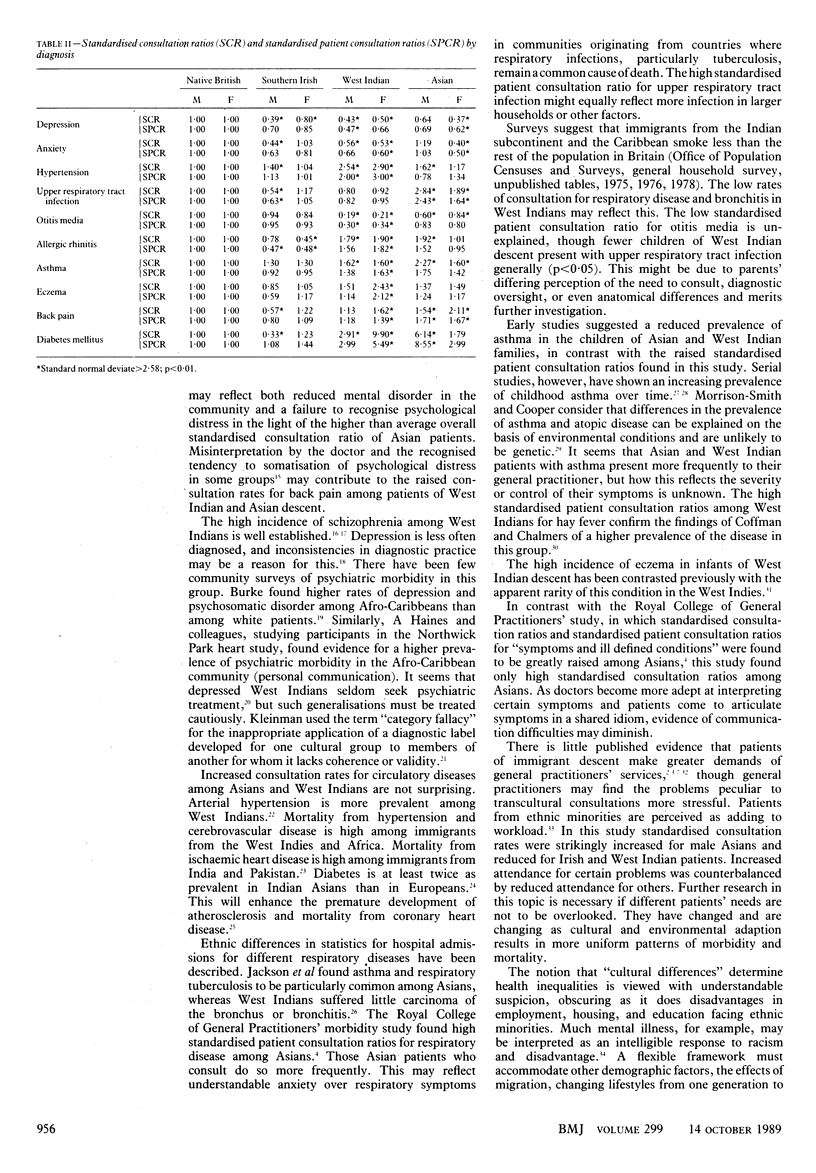
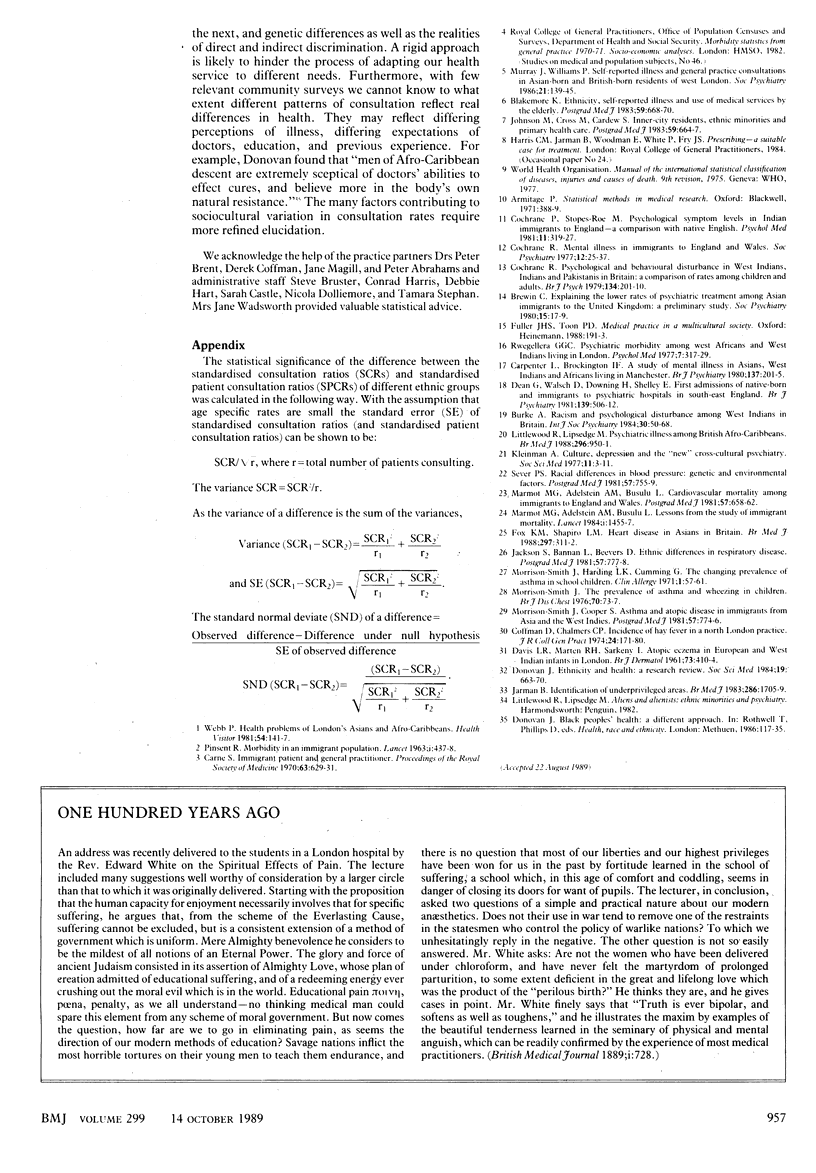
Selected References
These references are in PubMed. This may not be the complete list of references from this article.
- Blakemore K. Ethnicity, self-reported illness and use of medical services by the elderly. Postgrad Med J. 1983 Oct;59(696):668–670. doi: 10.1136/pgmj.59.696.668. [DOI] [PMC free article] [PubMed] [Google Scholar]
- Cochrane R. Psychological and behavioural disturbance in West Indians, Indians and Pakistanis in Britain: a comparison of rates among children and adults. Br J Psychiatry. 1979 Feb;134:201–210. doi: 10.1192/bjp.134.2.201. [DOI] [PubMed] [Google Scholar]
- Coffman D. A., Chalmers C. P. Incidence of hay fever in a North London practice. J R Coll Gen Pract. 1974 Mar;24(140):171–180. [PMC free article] [PubMed] [Google Scholar]
- Dean G., Walsh D., Downing H., Shelley E. First admissions of native-born and immigrants to psychiatric hospitals in South-East England 1976. Br J Psychiatry. 1981 Dec;139:506–512. doi: 10.1192/bjp.139.6.506. [DOI] [PubMed] [Google Scholar]
- Fox K. M., Shapiro L. M. Heart disease in Asians in Britain. BMJ. 1988 Jul 30;297(6644):311–312. doi: 10.1136/bmj.297.6644.311. [DOI] [PMC free article] [PubMed] [Google Scholar]
- Johnson M. R., Cross M., Cardew S. A. Inner-city residents, ethnic minorities and primary health care. Postgrad Med J. 1983 Oct;59(696):664–667. doi: 10.1136/pgmj.59.696.664. [DOI] [PMC free article] [PubMed] [Google Scholar]
- Marmot M. G., Adelstein A. M., Bulusu L. Lessons from the study of immigrant mortality. Lancet. 1984 Jun 30;1(8392):1455–1457. doi: 10.1016/s0140-6736(84)91943-3. [DOI] [PubMed] [Google Scholar]
- Murray J., Williams P. Self-reported illness and general practice consultations in Asian-born and British-born residents of West London. Soc Psychiatry. 1986;21(3):139–145. doi: 10.1007/BF00582684. [DOI] [PubMed] [Google Scholar]
- Smith J. M., Harding L. K., Cumming G. The changing prevalence of asthma in school children. Clin Allergy. 1971 Mar;1(1):57–61. doi: 10.1111/j.1365-2222.1971.tb02447.x. [DOI] [PubMed] [Google Scholar]


